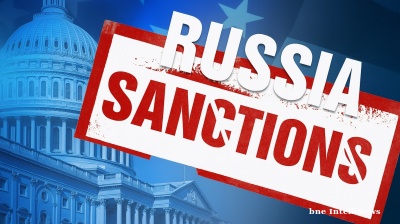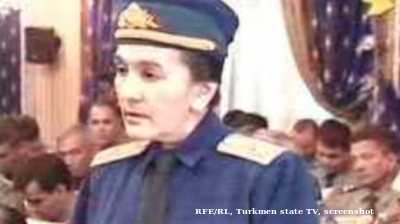I remember during the 2017 centenary of the 1917 February and October Revolutions wondering how the world looked at Russia with great intrigue. How would the Russian state square with this fateful year? How do Russians feel about it now? How many cultural events, conferences, academic papers and media interest can we generate to properly milk this anniversary?
The answer was a lot. And it wasn’t lost on anybody that the Russian state was mum. Just a few subtle acknowledgements, no official statements, and discussion about 1917’s legacy was left largely to the academic community – and Communist Party.
Few, however, acknowledged something else: the ordinary Russian citizen didn’t care much. Yes, everyone was aware of it, acknowledging the general silence of Putin and the Kremlin. But public interest was generally low.
Similarly in 2018, whilst we were all giddy to see how Putin would condemn the murder of the Tsar but not the Soviet regime which followed, more than half my Moscow students didn’t even realise this was 100 years ago – much less care. Beyond the Orthodox Church and small academic circles, few did.
One city that did was Yekaterinburg. Here the last Tsar and his family were murdered, and in place of the Ipatiev House is a new landmark in the Church on Blood in Honour of All Saints Resplendent in the Russian Land (say this ten times fast). And in 2023, Yekaterinburg marks its 300th anniversary. It literally is the talk of the town in which the birth of the USSR barely registered. The locals care a lot more about the tercentenary of their city than they do the centenary of the Soviet Union.
To be clear, people are not unaware. It was mentioned on the nightly news and in most of Russia’s printed press. History magazines available at any given kiosk had articles and sections dedicated to the USSR’s foundation. But beyond Yekaterinburg’s communists, interest is zero.
Asking why is not unreasonable. If Levada’s polling is accurate, 70% of Russians are nostalgic for the USSR and more than half have consistently regretted its collapse since 1991. If the Russian people regret its loss so much and are indeed rosy-eyed for this period, why was the centenary not a bigger deal? After all, the Kremlin has gone well out of its way to play on leftover Soviet nostalgia. Why was it not low-hanging fruit to accompany war propaganda?
The obvious, but wrong, answer is Ukraine. It could remind Russians that Ukraine was lost along with the other republics and Russia’s superpower status – there is polling data to suggest public regret this. More likely an explanation is one that I heard at a 2017 event at Moscow’s Jewish Museum: the majority of Russians never believed in the October Revolution or supported the Bolsheviks throughout the Civil War.
For the average person, the USSR of the 1960s and 70s is what defines their rosy imagination, not the Civil War or 1922. And in a city like Yekaterinburg, perhaps 1918 and events shortly after weren’t the happiest of its 300 years worthy of commemoration.
Consider also the fact that ‘Russia Day’ on June 12 lacks any meaning for the average Russian citizen. Initially it was referred to as independence day, but the concept of Russia’s independence from itself didn’t stick (the Russian Federation is the legal successor of the USSR).
Constitution Day? Much of the 1993 constitution has been eroded. But one only has to look at the posters, images and symbols to represent ‘Russia’ day over the years to realise that the state simply doesn’t know what to do with this holiday. Many companies stay open and at best people get to enjoy a long weekend in June.
With the notable exceptions of Victory Day and New Year’s Eve, Russian national holidays generally lack gravitas. But local ones don’t. When a Russian city or town has its birthday, it’s a big deal in the local community. Messages of national unity and patriotic undertones are always present and included, but one's town is also closer personally than abstract or distant events.
In the case of Yekaterinburg, it is also a very independent minded city with a liberal streak running through it. They once elected independent candidate Yevgeniy Roizman to be mayor, and the region’s United Russia governor, Yevgeniy Kuyvashev, is actually quite popular among sections of the liberal opposition. Equally, the man responsible for the USSR’s end, President Boris Yeltsin, is a son of Yekaterinburg. Given that he spent the first years of the Russian Federation trashing the USSR, and the Yeltsin Centre here practically celebrates it, reminding people of its greatness would be an odd thing to do.
To this end, remembering the end of a divisive and bloody period of history, particularly now, is quite unappealing. Like in 1922, for most there’s nothing to celebrate, but plenty to worry about.
James C Pearce is a British historian based in Russia.
Opinion

BEYOND THE BOSPORUS: Consumed by the Donald Trump Gaza Show? You’d do well to remember the Erdogan Episode
Nature of Turkey-US relations have become transparent under an American president who doesn’t deign to care what people think.

COMMENT: ANO’s election win to see looser Czech fiscal policy, firmer monetary stance
The victory of the populist, eurosceptic ANO party in Czechia’s parliamentary election on October 6 will likely usher in a looser fiscal stance that supports growth and reinforces the Czech National Bank’s recent hawkish shift.

COMMENT: Ukraine's drone attacks on Russian refineries have probably reduced throughput by 30.4%, less than headline figures suggest
Ukraine has been hitting Russian refineries and caused a fuel crisis that has spead across multiple regions. The headline figure is that oil refining has been reduced by 38% since August, but digging into it and the reduction is likely less.

MACRO ADVISORY: The unintended consequences of Western sanctions
Since 2014, Western nations have hit Russia with a total of 26,655 sanctions (to mid-September 2025), with 23,960 coming after February 2022. The largest target group, with 13,611 sanctions, is state officials, business owners, and oligarchs.




